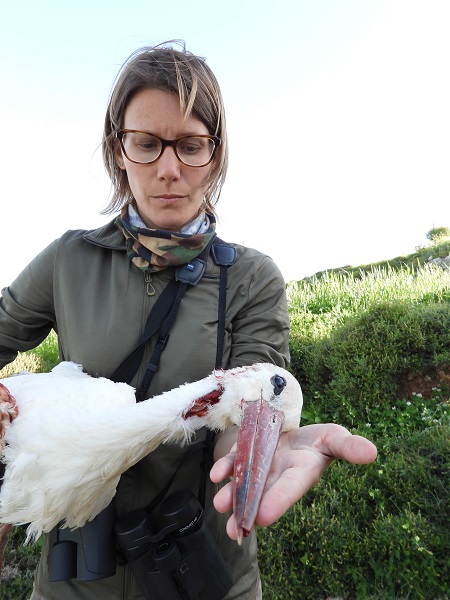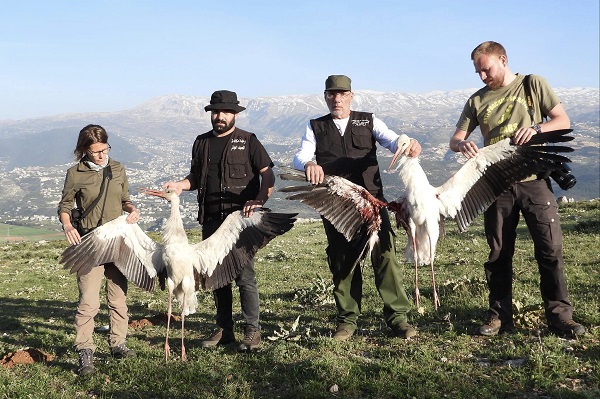Shooting European white storks in Lebanon

Travelling between Europe to their wintering grounds and back, thousands of white and black storks cross Lebanese airspace each year. Ring data from the German ornithological stations confirm that a large proportion of the white storks breeding in Germany take this route.
Like birds of prey, storks rely on thermals for migration and therefore migrate during the day, which makes them easy targets for poachers, especially near roosts or when crossing high mountain passes - where the birds often fly low within close shooting range. During spring operations in recent years, our teams have repeatedly witnessed outright "white stork massacres." From March to early April, we regularly receive reports of massive shootings, mainly from the mountains east of the city of Tripoli in the north of the country, as well as from the Bekaa Plateau. Much of this information is published by the poachers themselves, who, despite all bans, regularly display "trophy photos" of themselves and their prey on social media. Videos discovered by us on the poachers' profiles also prove that automatic-weapons - such as Kalashnikovs - are also regularly used in the stork massacres. Storks that survive the shooting are sometimes kept as live decoys, often with severe injuries and under poor conditions, to lure their others of their kind in front of the shooters' weapons. Besides the trophy photos, most birds are shot simply for 'fun' or partially butchered for consumption.

Thanks to the monitoring of important migration areas during joint anti-poaching operations with our partners and local authorities, the number of white storks killed per year in Lebanon has already been reduced. This is also due to the fact that more and more offenders are caught by our teams directly in the field or identified through social media and sentenced to fines often over several hundred dollars. Our Lebanese partners have also been conducting training seminars outside of the peak migration season for police officers, government employees and hunters as part of our ongoing education campaigns to improve law enforcement and awareness among the population. Nevertheless, mass shootings at rest areas remain widespread and a serious problem.
The actions of the Committee against Bird Killing for a better protection of white storks against poaching in Lebanon are financially supported by the Naturschutz-Tierpark Görlitz e.V.






